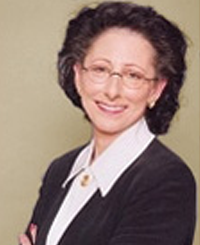Is It Time To Be Concerned?
Singing Christmas carols, lighting Hanukkah candles, roasting chestnuts by a roaring fire – things most of us will be doing in the next few weeks. This is also the time of year when we see parents and other aging loved ones that we may not see the rest of the year. You may be surprised they have aged (I know I\’m surprised every morning when I look in the mirror!!) but that doesn\’t necessarily indicate a reason for concern.
On the other hand, regardless of how often you talk by phone throughout the year, seeing a loved one in person can tell you a lot more than phone calls alone can reveal. The clues are all around you if you know what to look for. And the best part is that you can look around without making it a big deal for you or for your elderly parent.
Here are some things to look for:
Overall:
- Is your loved one clean and well groomed?
- Is s/he properly dressed with clean clothes?
- Has s/he gained or lost significant weight?
- Is s/he walking well (eg: good balance and posture)?
- Do you notice changes to his/her hearing, sight or speech.
- Is s/he is more timid, apprehensive or withdrawn?
- Do you notice a change in short term memory? Does s/he seem confused and/or lose her/his train of thought easily and/or often? Does s/he ask the same questions and/or tell the same stories over and over?
If you go to their home:
- Has the neighborhood changed? Does it look safe?
- Is the exterior of the house maintained?
- Is the interior of the house neat, clean, and well maintained?
- Is the refrigerator stocked with fresh (or at least edible) food?
- Do you notice excessive clutter and things like piles of unopened mail, lots of sweepstakes offers, etc?
- If the home has stairs, can s/he navigate the stairs safely or does it look like s/he is now living on the ground floor because of an inability to navigate the stairs?
What you see can run the gamut from “everything is fine” to “something is definitely wrong”. If you see something critical or alarming, obviously you have to take action immediately. If you don\’t see anything out of the ordinary, then this is a great opportunity to deepen and strengthen the lines of communication.
However, if you see something – or even just sense something – that just doesn\’t “feel” right but you are not sure of the extent of the issue, you need to dig deeper. Use the opportunity to talk with your aging loved one face to face. Express your concern and gently ask questions about what you have observed.
With family gathered, this is also a golden opportunity to get their input on the situation, too. Talk about your concerns and compare notes. Often when you put together everyone\’s observations, you will see a pattern emerge. In addition, as opportunities arise, discretely talk with your aging parent\’s friends and neighbors and see if they have noticed any changes and ask them to let you know if they do.
For example:
“You see Mom more often that I do. How do you think she is doing? She seems a little more forgetful (distracted, frail, etc) than usual. Have you noticed it too? Have you noticed if she has been like this for a while? You know I worry about her so if you do see anything, would you please give me a call?”
If you are concerned that your elderly parent needs help now or may shortly, I urge you not to wait for a crisis to develop. However, any time you spend with your loved one is precious so I hope you will also share the joy of the season and have some fun! These are the times you\’ll look back on with in years to come.
Happy holidays, friends, and a joyous new year!
© Copyright AgeWiseLiving® 2008 You can find information about “The Ultimate Caregiver\’s Survival Guide”: The step by step blueprint to resolving your eldercare issues by choice, not crisis WORKBOOK, AgeWiseLiving® seminars and free teleseminars, and to sign up for Barbara\’s free monthly newsletter at www.AgeWiseLiving.com or by calling toll-free (877) AGE-WISE. Barbara E. Friesner is an author and the country\’s leading Generational Coach and expert on issues affecting seniors and their families. She is an adjunct professor at Cornell University, where she created and teaches “Seniors Housing Management” at Cornell\’s School of Hotel Administration.


